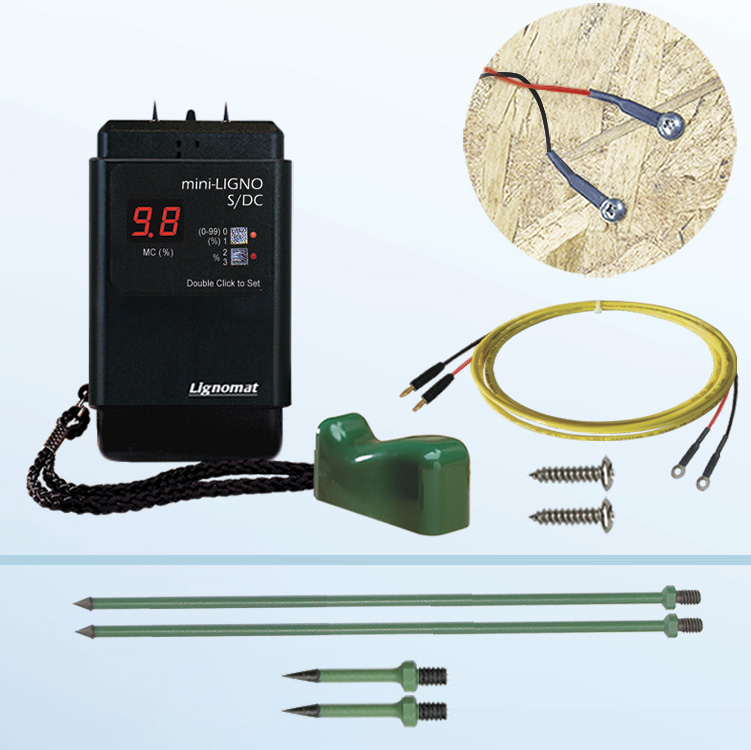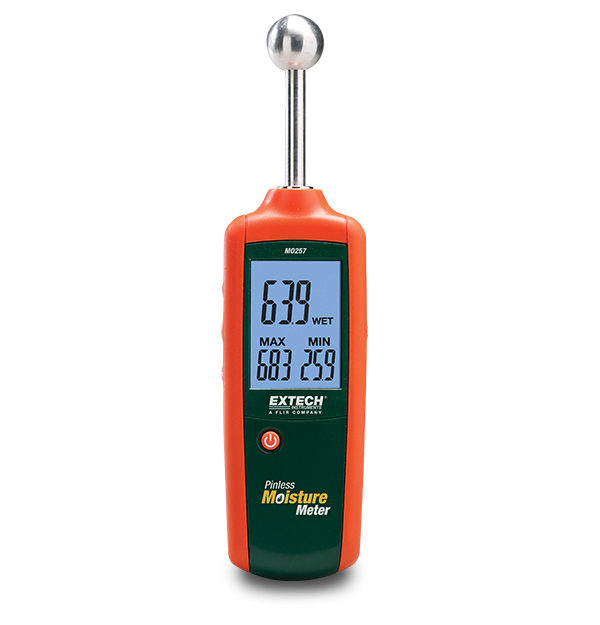The Ultimate Guide to Selecting the Right Moisture Meter for Your Requirements
The Ultimate Guide to Selecting the Right Moisture Meter for Your Requirements
Blog Article
The Ultimate Guide to Moisture Meters: A Comprehensive Introduction and Exactly How They Can Save You Money
Dampness meters serve as vital devices in discovering and checking moisture content in materials, helping in protecting against costly damages and making certain the quality of products. Comprehending the subtleties of various types of moisture meters, their applications, and the prospective cost-saving advantages they supply can be a game-changer for experts and services alike.
Kinds Of Dampness Meters
Various types of moisture meters are available for various applications in numerous sectors. One usual kind is the pin-type dampness meter, which measures the electrical resistance in between two pins inserted into a material. This kind appropriates for wood, drywall, and various other building materials. Pinless wetness meters, on the other hand, use electromagnetic sensor plates to check a bigger location without creating damages to the product's surface. Moisture Meter. These meters are suitable for swiftly examining dampness levels in big areas such as wall surfaces and floorings.

Moreover, there are also specialty dampness meters created for particular products like soil, hay, or grain. These meters supply accurate dampness readings customized to the distinct homes of the material being checked. Infrared moisture meters gauge the thermal homes of a product to identify its dampness material non-invasively, making them valuable for applications where pin or pinless meters may not be suitable. Recognizing the different sorts of moisture meters offered can aid industries pick the most proper device for their particular wetness measurement requirements.

Advantages of Utilizing Moisture Meters
Dampness meters use vital advantages in accurately assessing and monitoring wetness levels in diverse materials and settings. One of the key benefits of using dampness meters is the prevention of potential damage caused by excess moisture.
Additionally, using moisture meters can lead to raised energy efficiency. In farming settings, wetness meters play an important role in enhancing crop returns by enabling farmers to keep an eye on soil moisture levels and make informed irrigation decisions.
Just How to Select the Right Wetness Meter
When selecting a moisture meter, it's important to ensure that the meter is ideal for the details product you will be screening. Various materials have differing electric homes that can impact moisture analyses, so choosing a meter developed for your product is vital for accurate outcomes. By thoroughly evaluating these aspects, you can choose a wetness meter that meets your demands and offers exact wetness dimensions for your projects.
Correct Techniques for Dampness Meter Use

Price Financial Savings Via Wetness Meter Applications
Exactly how can the critical application of dampness meters cause considerable expense savings across various markets? Moisture meters play a crucial function in price savings by preventing possible damages and making certain quality assurance in different sectors. In the farming sector, wetness meters aid in establishing the ideal time for harvesting plants, preventing excess or over-drying moisture that can influence the end product's high quality. This exact monitoring aids farmers prevent unnecessary losses and optimize their yield.
Similarly, in building and construction, moisture meters assist prevent pricey damages by spotting wetness degrees in building materials, such as timber or concrete, which can result in architectural issues otherwise dealt with without delay. By identifying issue areas beforehand, contractors can take rehabilitative procedures to stay clear of comprehensive fixings or replacements, eventually conserving money and time.
Furthermore, in the food handling market, dampness meters are important for keeping an eye on item quality and making sure compliance with security guidelines. By properly gauging dampness web content in foodstuff, manufacturers can avoid putridity, preserve freshness, and decrease waste, leading to considerable expense savings. In general, the tactical application of wetness meters is an important investment that can result in substantial cost reductions and boosted performance throughout different markets.
Final Thought
In conclusion, dampness meters are beneficial tools for gauging and discovering dampness levels in numerous products. By utilizing the appropriate dampness meter and complying with correct strategies, customers can efficiently stop expensive problems caused by excess wetness.
Moisture meters offer as indispensable tools in identifying and monitoring moisture material in products, aiding in avoiding pricey you could check here damages and ensuring the quality of products. Infrared wetness meters gauge the thermal residential or commercial properties of a material to determine its wetness web content non-invasively, making them helpful for applications pop over here where pin or pinless meters may not be appropriate.Moisture meters use important benefits in accurately checking and assessing wetness degrees in varied materials and atmospheres. In agricultural setups, wetness meters play a vital role in enhancing plant yields by allowing farmers to keep track of soil dampness degrees and make educated watering choices.In conclusion, dampness meters are useful tools for detecting and determining dampness degrees in different materials.
Report this page